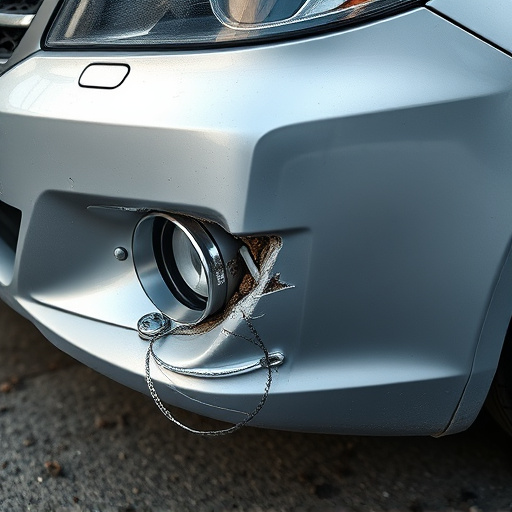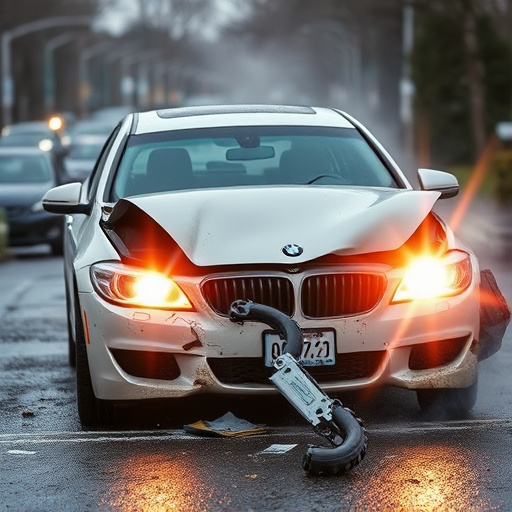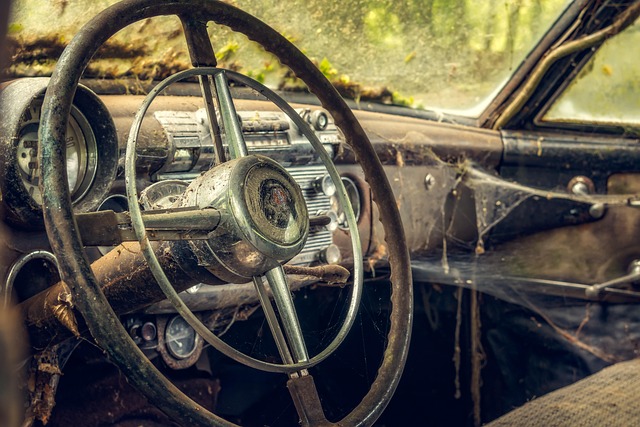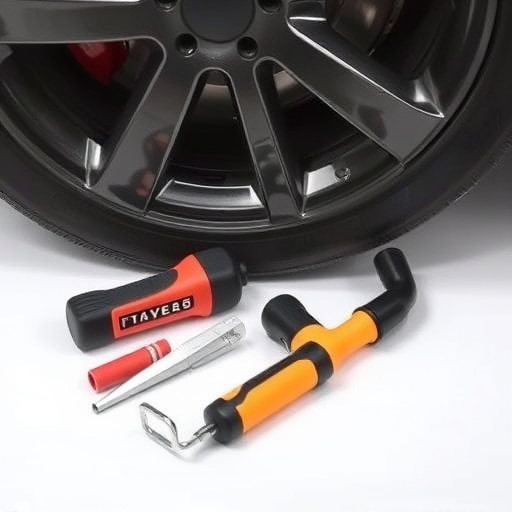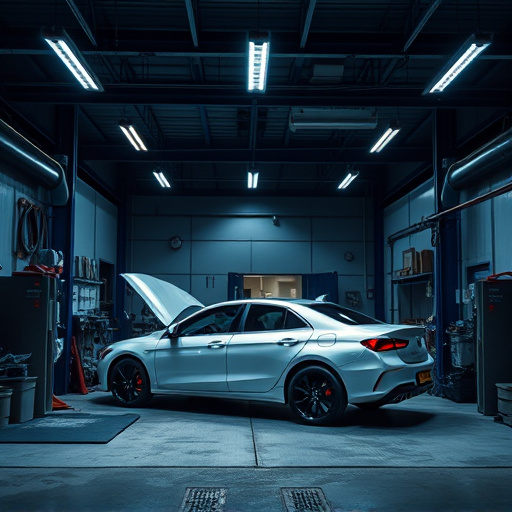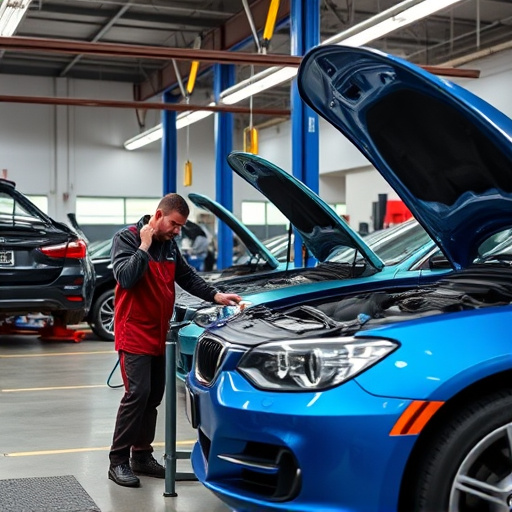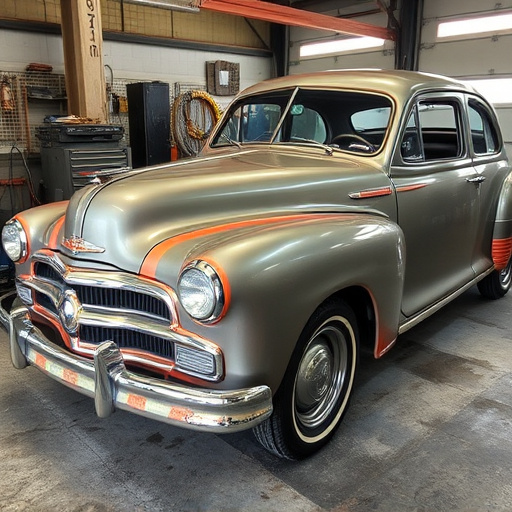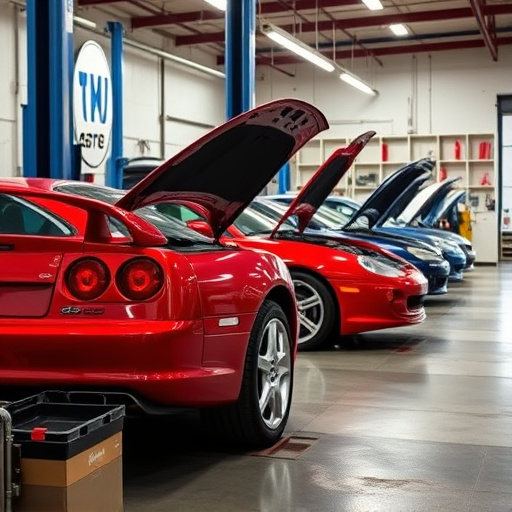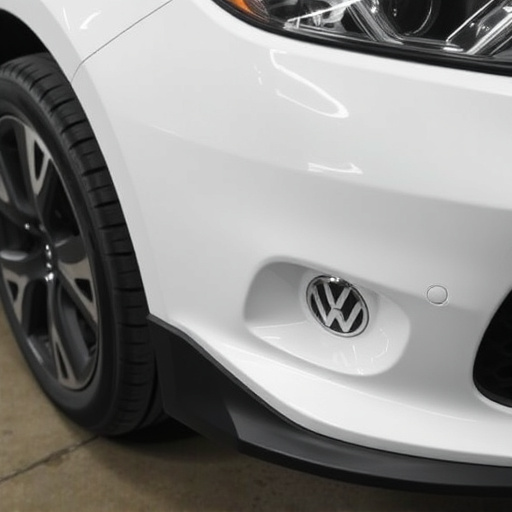Artificial Intelligence (AI) revolutionizes automotive refinishing by tackling color consistency challenges, offering precise matching for new paint jobs and touch-up repairs. This technology caters to clients seeking perfection, streamlining processes, enhancing accuracy, and preserving historical authenticity in classic car restorations. AI's ability to analyze vast data on lighting conditions and material properties promises enhanced color accuracy, enabling efficient, cost-effective, and high-quality automotive body shop services.
Can artificial intelligence (AI) revolutionize the way we match colors in automotive refinishing? With its ability to analyze vast data, AI offers unprecedented potential for enhancing color accuracy in this precise and demanding industry. This article explores how AI is transforming automotive refinishing by addressing challenges related to color consistency. We delve into current applications, future prospects, and the promising landscape of AI-driven color technology, setting the stage for a new era in vehicle restoration.
- AI's Role in Enhancing Color Consistency
- Challenges in Automotive Refinishing Color Accuracy
- Future Prospects: AI and Color Technology
AI's Role in Enhancing Color Consistency
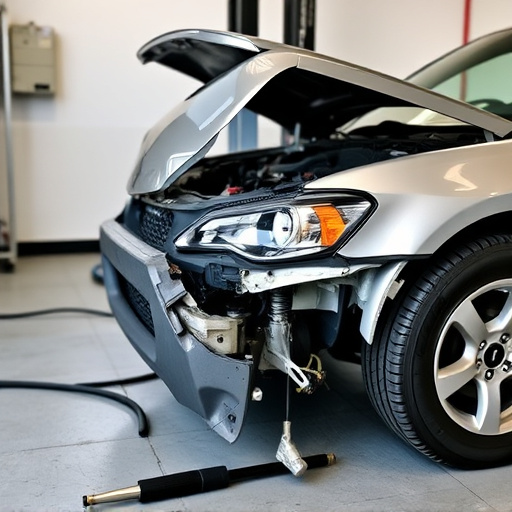
Artificial Intelligence (AI) is revolutionizing various industries, and its impact on automotive refinishing is no exception. In the world of car repairs, especially mercedes benz repair or any auto body shop, maintaining color consistency across different vehicles and touch-up jobs is a significant challenge. This is where AI steps in as a game-changer.
AI algorithms can analyze and match colors with incredible precision, ensuring that every vehicle receives an exact shade. By utilizing machine learning techniques, these systems can learn from extensive databases of color formulations, allowing them to replicate and predict colors with remarkable accuracy. Consequently, this enhances the overall quality of automotive refinishing services offered by top-tier auto body shops, catering to clients who demand perfection in their vehicle’s finish, whether it’s a sleek new paint job or a precise touch-up repair.
Challenges in Automotive Refinishing Color Accuracy
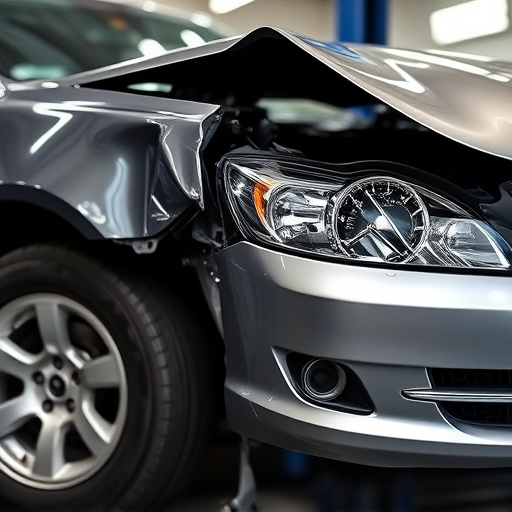
Achieving precise color accuracy in automotive refinishing has long been a significant challenge for professionals in the industry. The complex process involves matching vast arrays of colors, often requiring meticulous attention to detail and a deep understanding of pigment formulations. Factors such as variations in paint batches, environmental conditions, and even the unique characteristics of different car makes and models can lead to deviations from the desired color match. These challenges are further exacerbated when dealing with specialized tasks like collision repair or hail damage repair, where restoring a vehicle’s original appearance demands exceptional color accuracy.
Additionally, classic car restoration projects pose unique difficulties due to the age and limited availability of original paint formulas. Restoring these vintage vehicles requires not only precise matching but also preserving the authenticity and historical integrity of the automobile. As such, professionals in collision repair centers and automotive refinishing shops continually seek advanced solutions to streamline color accuracy, ensuring that every restored vehicle exudes a flawless, vibrant finish.
Future Prospects: AI and Color Technology
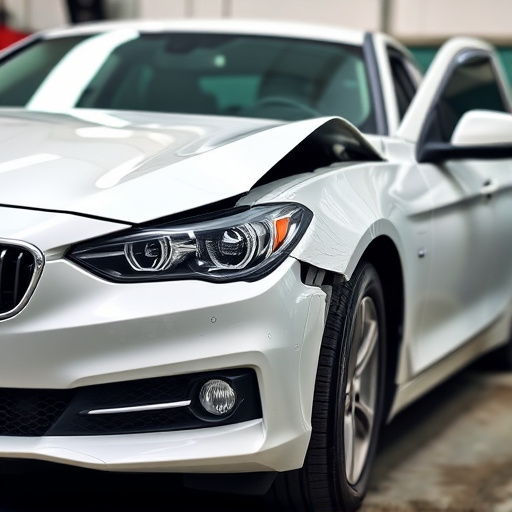
The future of automotive refinishing looks set to be transformed by advancements in AI and color technology. As artificial intelligence continues to evolve, its potential to enhance color accuracy becomes increasingly apparent. AI algorithms can analyze vast datasets, learning from a wide range of factors that influence color appearance, from lighting conditions to material properties. This capability opens up exciting possibilities for car bodywork services, enabling more precise and consistent color matching during the refinishing process.
By leveraging AI, automotive body shops can streamline their auto maintenance procedures and deliver superior results. These intelligent systems can predict color shifts, account for environmental factors, and even adapt to unique vehicle surfaces, ensuring that every repair or restoration job meets the highest standards of color accuracy. This level of precision not only enhances the overall aesthetic appeal but also contributes to a more efficient and cost-effective automotive refinishing process.
Artificial Intelligence (AI) has the potential to revolutionize automotive refinishing by significantly improving color accuracy. By leveraging machine learning algorithms and advanced image analysis, AI systems can match colors precisely, accounting for factors like material variations and environmental conditions. While current challenges exist, such as the need for extensive data sets and calibration, ongoing research and development promise to overcome these hurdles. In the future, AI-driven color technology will not only enhance the quality of vehicle finishes but also streamline production processes, ultimately benefiting both manufacturers and consumers in the ever-evolving landscape of automotive refinishing.
